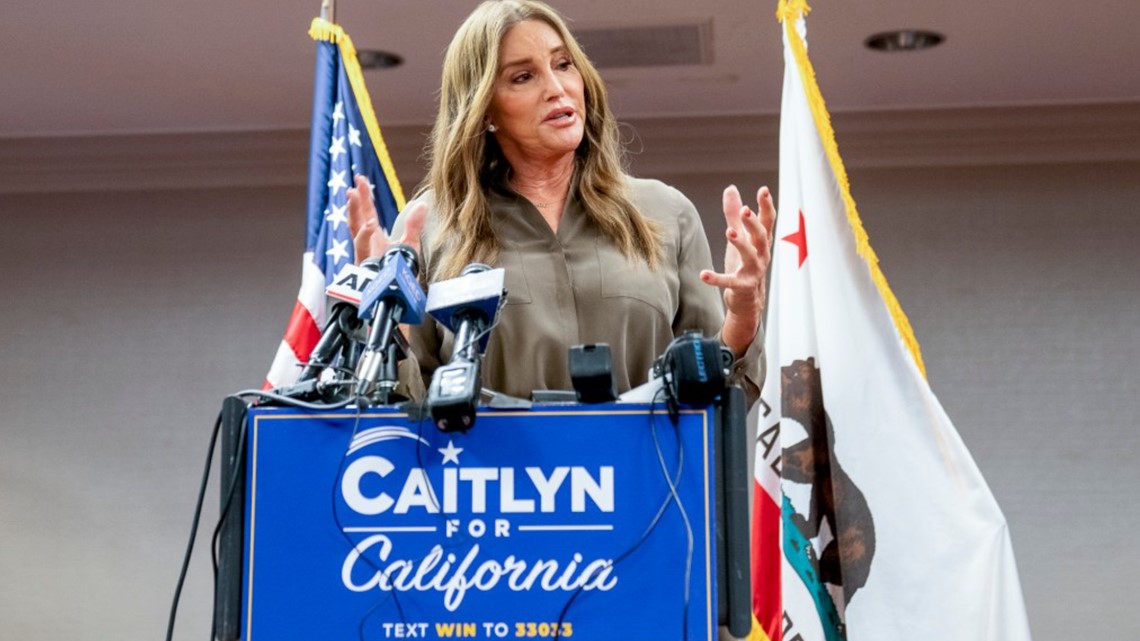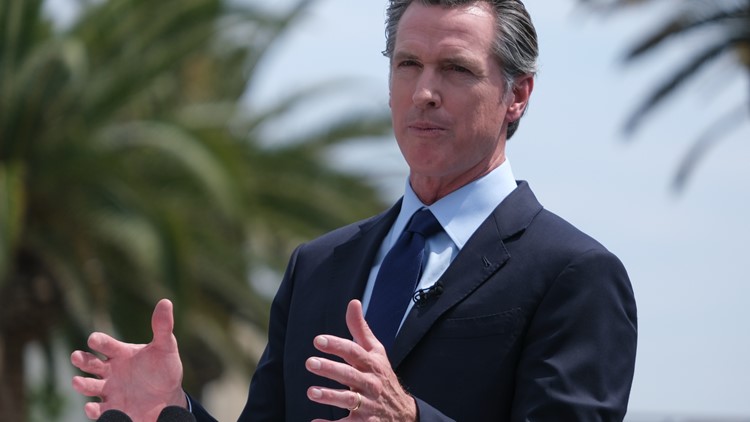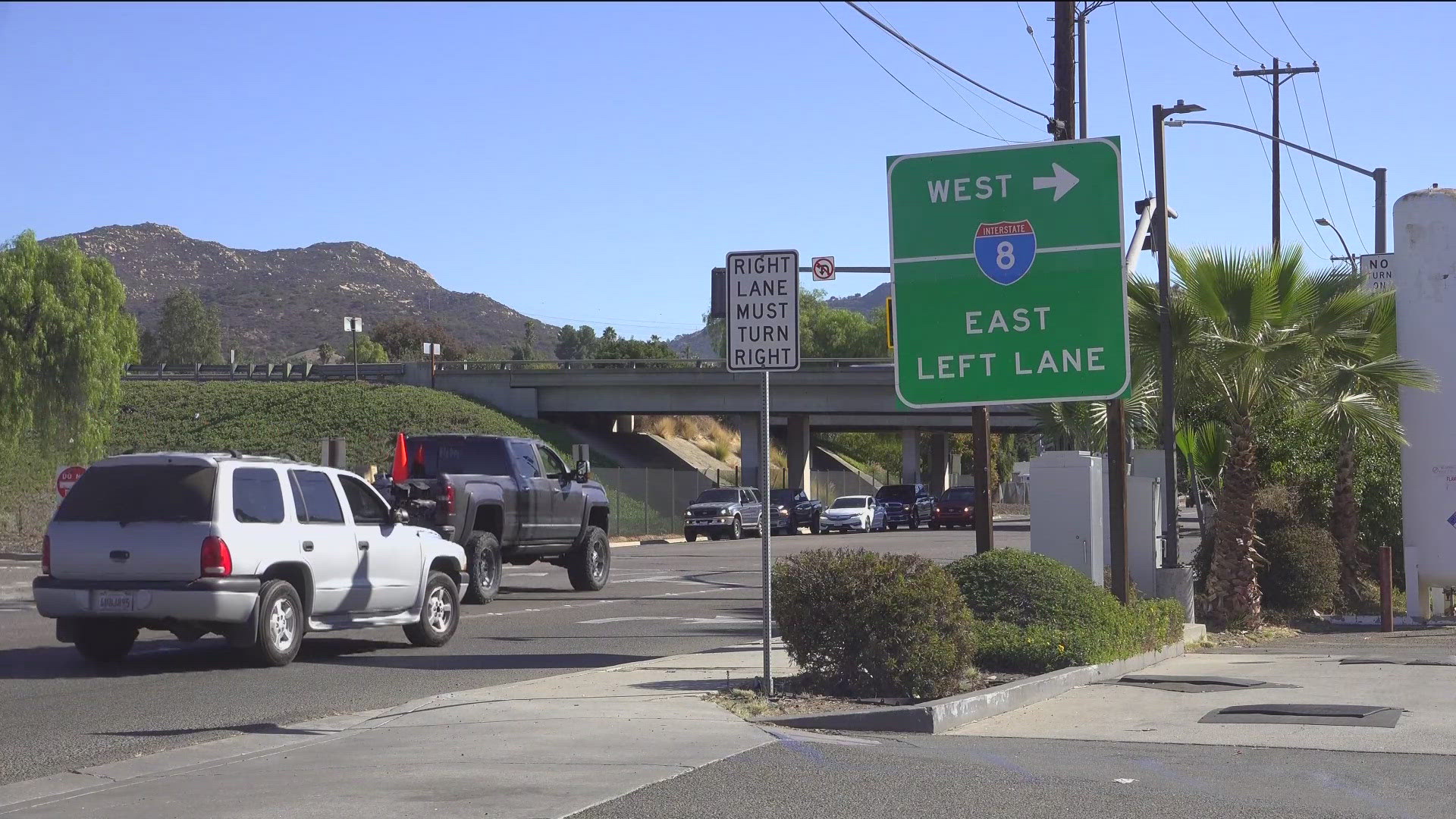CALIFORNIA, USA — This story was originally published by CalMatters.
Gov. Gavin Newsom knew he was forcing his future opponents to make more information about themselves public when he signed a law in 2019 requiring gubernatorial candidates to release five years of tax returns. What he didn’t know then, however, was that the first round of competitors would surface during a recall election in 2021.
This month, for the first time in California history, candidates for governor were required to make their tax returns available to the public. Forty-two candidates properly submitted their tax returns to the secretary of state’s office and are qualified to appear on the Sept. 14 ballot.
Eight other candidates did not qualify at least in part due to the tax return requirement, according to rejection letters released by the secretary of state.
They include conservative talk show host Larry Elder, who is disputing the rejection. Secretary of State Shirley Weber said his documents were not submitted properly and so she left him off the ballot. Elder announced Monday that he’s suing to get on the ballot, arguing that he shouldn’t be disqualified over a redaction error but also that the tax return requirement shouldn’t apply to the recall.
“I will not stand for these shenanigans, and I know you won’t either,” he tweeted, asking for campaign donations.


Newsom’s spokesperson said the governor submitted five years of tax returns, the same records he’s allowed reporters to review in the past. Weber’s office is not publishing them, however, because Newsom is not technically a candidate on the recall ballot.
But she has published tax returns of the candidates hoping to replace Newsom. Here’s what we’ve learned from reviewing them:
Not a lot to Uncle Sam
GOP businessman John Cox has poured $5 million into his second run for governor, but he and his wife Sarah Hall Cox reported a taxable income of zero in 2019.
Even though Cox reported receiving more than $1 million that year from apartments and other investments he owns, he reported losses of more than $2 million. His charitable donations included stock shares to the Rescue California Education Fund — and use of his jet.
The end result was $294,000 in deductions and $279,000 in adjusted gross income, so no federal tax obligation.
In 2018, Cox reported an adjusted gross income of $910,105 and paid $11,654 in taxes — an effective tax rate of about 1.3%.
In 2017 and 2016 — before the tax cut pushed through by then-President Trump and the Republican Congress — Cox had to pay the alternative minimum tax, so he wasn’t able to reduce his bill as much through various deductions.
Public servants, boring returns
Some current and former elected officials on the ballot submitted rather pedestrian tax filings.
Republican Kevin Kiley’s taxes were fairly straightforward. His salary since he began his state Assembly term in 2017 has remained steady around $100,000. Prior to that, he reported income as a contract attorney. In 2020, Kiley reported net profit from a cattle business of $1,436.
As mayor of San Diego, Republican Kevin Faulconer and his wife Katherine Stuart reported combined adjusted gross incomes ranging from $142,609 in 2016 to $358,119 in 2019. Stuart was the primary breadwinner as president of Restaurant Events, Inc., a company that plans block parties and other events. Faulconer reported around $70,000 in wages from the city of San Diego.
GOP Board of Equalization member Ted Gaines had the most complex filings among the elected officials. He and his wife Beth Gaines run an insurance business and own numerous rental properties. In 2020, they reported wages from the state of California of nearly $106,000, earnings from the Gaines Insurance Agency of $172,000 and income from their rental properties of nearly $136,000. However, after expenses and deductions, their adjusted gross income was about $241,000. They paid a little more than $31,000 in federal taxes last year. The couple’s adjusted gross income in 2019 was $405,000, up from $311,000 in 2018.
Caitlyn Jenner, international brand
While Caitlyn Jenner is reportedly in Australia to compete in “Celebrity Big Brother,” she reassured the public on Twitter that there would be “no pause at all on this race to save CA.”
Her multinational presence while campaigning is a reflection of her taxes: Over the last few years, Jenner has paid taxes not only in the U.S., but also to Australia, Greece and Indonesia in 2019, as well as to the United Kingdom and Ireland in 2018.


She hasn’t yet filed her 2020 taxes, but her filings since 2016 show a mix of business income, and her earnings from rental real estate, partnerships and royalties. In both 2019 and 2018, Jenner’s total income amounted to more than $500,000, a drop from the $1.94 million she reported in 2017 and $2.52 million in 2016, which was likely fueled by the publishing of her memoir in 2017.
She has also claimed tax deductions for gifts and charities, including the donation of a 2011 Porsche to her foundation.
California caricatures
California, the land of opportunity. Want to make billboards of yourself driving around in your Corvette? Want to lead a sanctuary for spiritual enlightenment and holistic healing? Anything is possible here — with the right tax accountant.
Angelyne, a SoCal billboard icon, and Holly Baade, a Marin County shaman and yoga teacher, are two of the most eccentric gubernatorial candidates. Both of them reported negative adjusted gross incomes last year (due to business losses), received unemployment benefits and owed no federal taxes.
Baade, a Democrat, reported $51,000 in sales and $150,000 in expenses related to her center that offers tai chi, meditation, shamanic healing and ayurvedic therapy. She also reported nearly $21,000 in unemployment payments.
Angelyne, who has no party preference, reported $28,200 in unemployment compensation. Known for plastering her image on Los Angeles billboards, the one-named personality reported nearly $360,000 in business expenses, including $7,800 for costume supplies and more than $58,000 for 102,000 miles on her three Corvettes.
Slammed by COVID recession
Like many Californians, some average folks on the ballot got hammered financially by the pandemic-related economic crisis.
Heather Collins, a Playa del Rey hairstylist, reported $93,294 in income from her business in 2019. But last year, that income plummeted to $16,504, and she collected $15,450 in unemployment benefits.
David Bramante, a Calabasas real estate agent and developer, reported that his business income dropped from $127,485 in 2019 to $74,983 in the coronavirus year of 2020. And David Lozano of San Marino, a former deputy sheriff, and his wife said they made $68,330 from real estate in 2019, but lost $67,289 in 2020 and collected more than $23,000 in unemployment.
But others capitalized on the soaring stock market. Major Singh, a software engineer, reported $540,000 in capital gains for 2020, compared to $132,300 in 2019.
Taxes go beyond politics
Liberal and conservative activists among the candidates may have different political views. But some of their tax returns show them to be more alike financially.
Michael Loebs of San Francisco is an organizer with the California National Party, which advocates for universal basic income and single-payer health care. Sarah Stephens is a Riverside County pastor who has held events calling for the reopening of the state during the pandemic. They both make far less than the median household income of $80,440 a year.
In 2020, Loebs reported wages of $32,510 and federal taxes paid of $2,230. In 2020, Stephens and her husband made $49,452 and paid taxes of $2,530, but claimed an earned income credit of $1,552 and child tax credits of $7,000.
Meanwhile, former labor leader Joel Ventresca, a San Francisco Democrat, and Chauncey “Slim” Killens, a Republican pastor from Hemet and supporter of former President Trump, get by mostly on pensions and other retirement earnings.
In 2020, Ventresca reported $76,495 from pensions and $25,015 in Social Security. Killens and his wife said they received $64,974 from pensions and $11,444 from Social Security last year.
Of the 41 candidates on the ballot, two — Democrat John Drake and Republican Nickolas Wildstar — didn’t have to file federal tax returns.
WATCH RELATED: California's recall election will cost $276 million, recall date set for Sept. 14. (July 2021)



